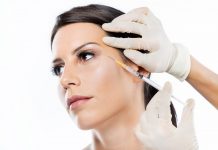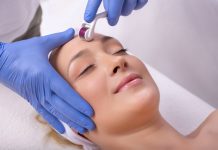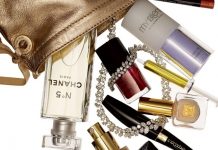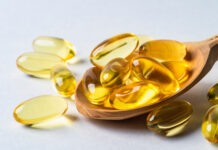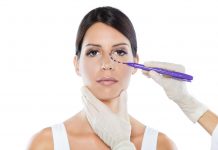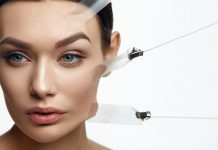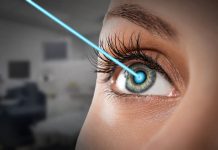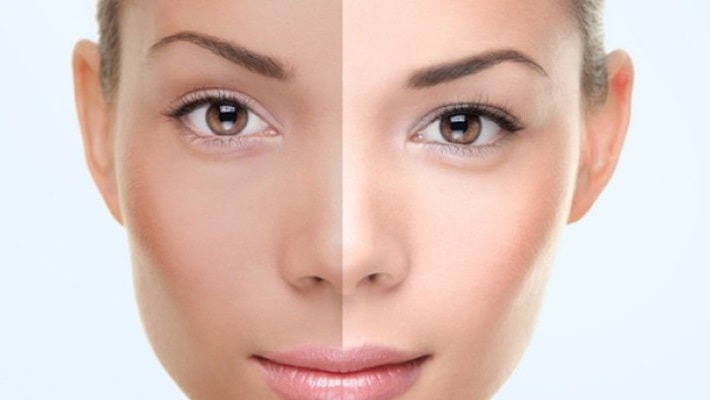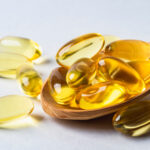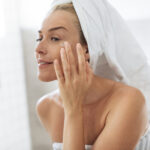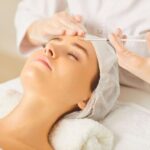Skin whitening & Tanning, the two controversial words in beauty industry. Whatever your choice is, we respect it. At the end of the day, that your skin, and you have full control of it. However using some products or techniques to achieve either skin whitening or tanning can have severe effects, one of them can be Skin cancer. Today we will give you all the information you need to go through that procedure safely.
There’s a lot of whitening agents out there but the most famous ones and also the most effective are ones are the following:
Hydroquinone:
is an aromatic compound derived from phenol. It is a white crystalline powder, odorless, which is used for its antioxidant properties.
Hydroquinone is used to fight hyper-pigmentation, , caused by pregnancy, the contraceptive pill, hormone therapy or certain wounds. This agent works by blocking the production of melanin, a brown pigment, synthesized by specialized skin cells, melanocytes. The pure substance of hydroquinone can cause serious damage to human health. It is an agent that causes severe eye damage and is a skin sensitizer. It is suspected to induce genetic abnormalities and increase the risk of cancer.
In some cases, hydroquinone may cause extreme redness, itching, or burning sensation when applied to the skin. Regular use of hydroquinone can cause significant irritation of the skin, especially for people who already have sensitive skin or are allergic.
Prolonged use of lightening creams containing hydroquinone tends to thicken the collagen fibers, and damages the connective tissue. The result is rough skin that reveals dark spots.
On the other hand, exogenous ochronosis (ocher pigment deposition in the dermis giving a bluish hyper-pigmented skin appearance) is a known side effect of the use of hydroquinone.
The marketing of skin whitening products containing hydroquinone has recently been banned in several countries because of the probable link between cosmetic use and cancer risk. Studies have shown that hydroquinone can be an irritant in concentrations greater than 4%. However, this product is still widely available on the Internet, so caution is required for all people looking for a lightening care.
Alpha-Arbutin:
One of the main sources of Alpha-Arbutin is a small tree, called the Arctostaphylos uva-ursi. Bear grapes grow in most of the northern hemisphere and are most often found in mountainous areas. It is also found in Wisconsin and New Jersey.
Alpha arbutin has the properties of blocking the effects of melamine on the skin without causing any bad effect. This agent acts quickly by lightening the skin and reduces the pigmentation that occurs after exposure to UV rays.
Alpha arbutin is the ideal alternative to the dangerous agents that have been used to lighten the skin. It is composed of natural ingredients that removes the unwanted pigmentation, rather than killing the cells that produce the melanin.
Alpha-Arbutin has no effect on cells. It does not modify the thickness of the skin. It does not increase sensitivity to light. Alpha Arbutin is not a Prohibited Substance. It is often combined with other natural ingredients for greater efficiency and to have faster results.
Mercury:
Many dark spot remover creams contain mercury. While mercury can effectively lighten your skin, it can also be very harmful. Mercury is a toxic substance that has the potential to damage the kidneys. Mercury in a dark spots removal cream may also cause skin discoloration, scarring and skin rashes. Mercury is also found to reduce the skin’s resistance to fungus and bacteria.
Finally, here’s the list of both harmful and safe whitening agents that you need to know when purchasing a whitening cream.
Harmful whitening agents:
Hydroquinone>2%
Mercury
Carcinogenic
Safe whitening ingredients:
Alpha-hydroxyl Acids
Kojic Acid
Arbutin
Vitamin C
Vitamin B3




